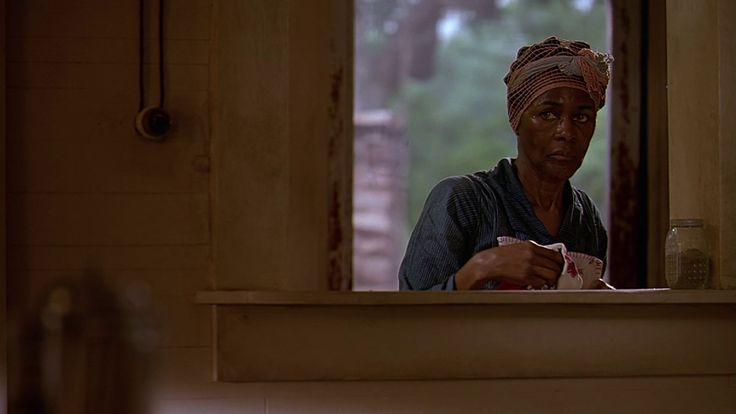
In the colorful and emotionally layered world of Fried Green Tomatoes, few characters cast a darker shadow than Frank Bennett. Portrayed as a menacing figure cloaked in charm and control, Frank is not just a narrative antagonist — he is the embodiment of the dangers women face in a patriarchal society.
Though his screen time is limited compared to the central heroines, his influence reverberates through every act of resistance, protection, and transformation that follows. Frank Bennett is more than just “the bad guy” — he is the catalyst that reveals just how far love and community will go to fight back against abuse.
Charming on the Outside, Cruel Within
At first glance, Frank Bennett appears to be the kind of Southern gentleman that society idealizes. He’s handsome, confident, and persuasive — qualities that quickly draw in the vulnerable and kind-hearted Ruth Jamison. But beneath that polished surface lies a deeply abusive man, fueled by a desire to control and dominate.
Frank represents the archetypal abuser who hides behind social charm and traditional roles. To the outside world, he might seem respectable. But in private, his behavior is monstrous. He is physically and emotionally abusive, and he uses fear to maintain power.
His character forces viewers to confront the uncomfortable truth: that abuse is often hidden behind smiling faces, and that victims like Ruth are often silenced by societal expectations of obedience and endurance.
Frank as a Symbol of Toxic Masculinity
Frank doesn’t just mistreat Ruth — he actively works to possess her. He views marriage as ownership and treats his wife and child as extensions of his authority. When Ruth dares to leave him, he doesn’t see it as a personal failing — he sees it as rebellion that must be punished.
In this way, Frank embodies toxic masculinity in its purest form. He believes women exist to serve men. When Ruth chooses freedom, he turns vengeful, stalking her and eventually arriving in Whistle Stop to reclaim what he believes is rightfully his: his “property.”
It’s not just Ruth he threatens, but the entire structure of chosen family and female solidarity that Idgie and others have built around her. Frank’s return is a threat to everything the café represents — love, safety, independence, and healing.
The Catalyst for Crime — and Justice

Frank’s presence eventually leads to the film’s most infamous plot point: his disappearance and murder. While the film dances around the specifics, it’s heavily implied that Frank is killed by Sipsey when he tries to kidnap his son — and that Big George helps cook and serve his remains in the café’s barbecue.
This dark, almost Southern Gothic twist is jarring. But it also serves a thematic purpose. Frank’s death is not just an act of revenge — it is an act of protection. A community rises to shield one of its most vulnerable members, and in doing so, they commit a crime that feels morally justified.
Frank’s end is brutal, but symbolic. He is literally consumed — his power, his control, and his violence rendered null. The people he terrorized refuse to let him win, and the story rewrites justice in its own unapologetic way.
His Impact on Ruth, Idgie, and Whistle Stop
Frank’s abuse transforms Ruth from a sheltered and submissive woman into someone who learns to fight for herself and others. With Idgie’s support, Ruth finds the strength to leave him, raise her son, and create a new life rooted in mutual respect and love.
For Idgie, Frank is the personification of the world she resists — a world that tells women who to love, how to behave, and what their roles should be. Frank’s presence deepens Idgie’s resolve to protect those she loves, even if it means skirting the law.
And for Whistle Stop as a community, Frank is a test. Will they stand by as a woman is terrorized? Or will they risk everything to protect her? Their answer — hiding the crime, supporting Ruth, and letting the past rest — reveals a powerful network of solidarity that transcends legal systems and moral gray zones.
A Warning That Echoes Beyond the Film
Frank Bennett may be a character rooted in a specific time and place, but his type is timeless. He represents all the forces that seek to suppress women’s agency — through fear, manipulation, and violence.
His character forces us to confront hard truths: that domestic abuse is often hidden, that charm can be deceptive, and that society often enables abusers by remaining silent. Fried Green Tomatoes doesn’t just punish Frank — it unearths the cost of allowing men like him to operate unchecked.
Final Thought
Frank Bennett may be gone long before Fried Green Tomatoes ends, but his shadow lingers — not as a symbol of victory, but as a warning. His cruelty sparked a chain of events that ultimately led to greater love, loyalty, and resilience among the characters.
By portraying Frank not just as an individual villain but as a societal force, the film offers more than a personal story — it delivers a profound commentary on justice, womanhood, and the quiet revolutions that happen when the oppressed say, “Enough.”
